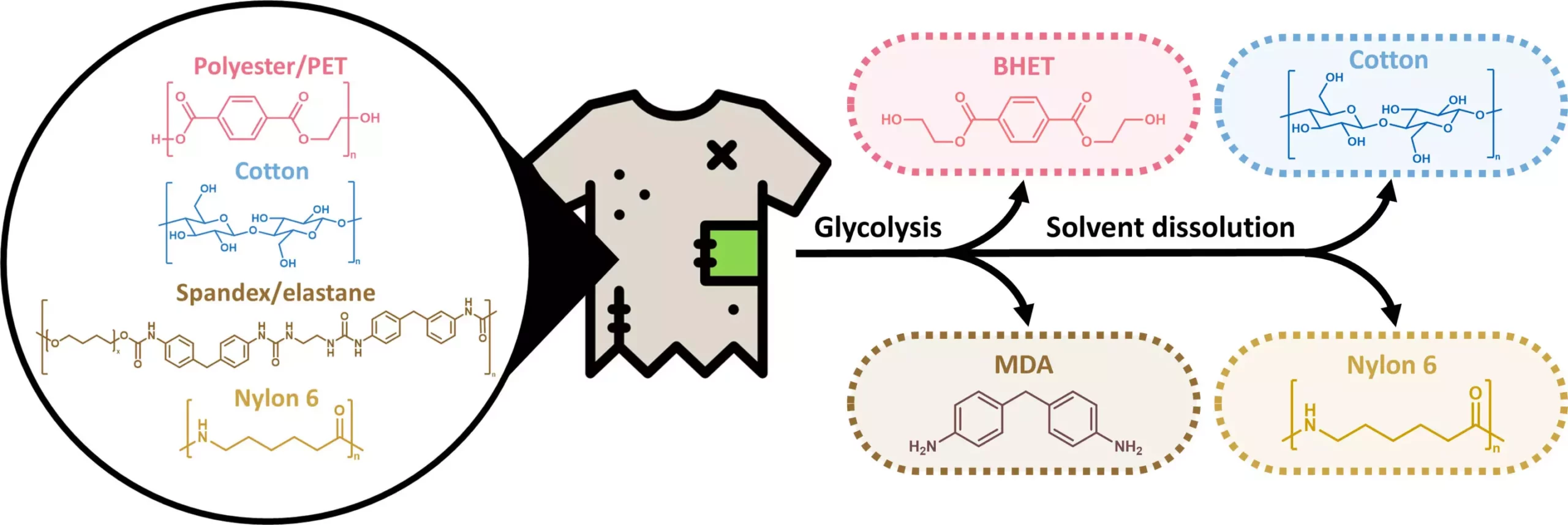In a groundbreaking study, a team of engineers from the University of Delaware and the Center for Plastics Innovation has revolutionized the way textiles are recycled. Their innovative process allows for the efficient and cost-effective separation of fibers in clothing, addressing the challenges posed by the rise of fast fashion and the use of diverse fiber blends.
The team’s method involves the use of a solvent to dismantle the bonds between polyester and other fibers, such as nylon or cotton. By introducing zinc oxide as a catalyst and utilizing microwave radiation, they were able to accelerate the fiber separation process significantly. This approach enabled the researchers to disassemble textiles in a mere 15 minutes, releasing nylons, cottons, and other materials while breaking down polyester into BHET and spandex into monomers.
One of the most promising aspects of this research is the potential for using the resulting organic compounds, such as BHET, to create new polyester. This not only promotes sustainability in textile production but also reduces the reliance on virgin materials. Moreover, the retention of material integrity in nylon and cotton fibers opens up the possibility of utilizing these fibers to manufacture new clothing items, contributing to a circular economy model.
While the study demonstrates significant progress in textile recycling, there are still challenges to overcome. The presence of flame retardant chemicals in treated clothing hinders the efficiency of the process, necessitating the development of methods for their removal prior to recycling. Additionally, the researchers have emphasized the need for further economic analysis to establish the viability of scaling up this innovative recycling method.
The development of a chemical separation process for fibers in textiles represents a major advancement in the field of sustainable fashion. By offering a practical solution to the complexities of recycling mixed fiber textiles, this research paves the way for a future where the environmental impact of clothing production is minimized. As the demand for sustainable practices continues to grow, initiatives like these are crucial for reshaping the fashion industry towards a more environmentally conscious and resource-efficient approach.


Leave a Reply